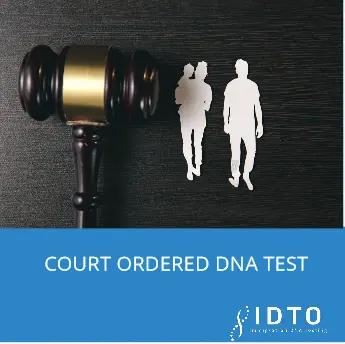Establishing paternity is vital for a child’s well-being and legal protections. Yet when unmarried parents disagree over a child’s paternity, getting clarity can be challenging. A court-ordered DNA test often becomes necessary for resolving the dispute and moving forward.
This article provides an overview of the DNA testing process through Family Courts and without court oversight.
What does Court-Ordered DNA Testing mean?
A court-ordered DNA test is a paternity test issued by a family court judge to legally establish the biological paternity of a child. This judicial order requires the alleged parents and child to submit DNA samples for analysis. If the DNA test confirms paternity, the child will be provided legal rights and parental support.
How to get a court-ordered DNA paternity test?
Performing a paternity test with Family Court oversight requires either the alleged father or mother/legal guardian to file a paternity petition with Family Court.
State Provide DNA Testing
Filing the petition is the first step. Paternity petition documents can be located on your state’s website. Please keep in mind the process of filing will vary for each state.
Once the petition is filed, the petition must be accepted before DNA Testing can be requested.
If your petition is accepted, a hearing date will be set. A notice to appear in court will be sent to the respondent. At the time of your hearing, the judge will request DNA Testing be performed with the father and child. The mother is required to participate in the testing process to help increase the accuracy of the DNA result.
The Judge will provide both parties with instructions regarding who will provide instructions on sample collection through the state. Please note, that DNA Testing in your state may be not free. Some states may require an upfront out of pocket cost, other states may pay upfront and you reimburse the cost later, or the state will out of pocket with no reimbursement required.
Turnaround Times
The turnaround time for this process will vary from state to state. On average, results are available within two months from the DNA sample collection.
We recommend that you speak with a family law attorney in your state before filing a paternity petition to ensure that you understand the expectations of the process based on your specific circumstances.
Non-State Legal DNA Testing
Many unmarried couples perform a legal paternity test before filing, while filing, or after the hearing with the judge. Regardless of the option you choose. Below is the process of scheduling an appointment for a legal paternity test.
First, call IDTO for legal paternity testing services at 877-680-5800 to schedule an appointment.
Next, an appointment will be scheduled for all parties if they reside in the same state or a different one.
After all DNA samples have been collected they will be sent to a laboratory for processing and analysis.
Turnaround Times
DNA Test results will be completed within 2 to 3 business days from the date the lab receives all genetic samples.
Accreditation & Reliability
It should be noted all legal DNA Testing services are under the strict supervision of our partner AABB (formerly known as the American Association of Blood Banks) which is the accrediting body that is recognized by family court judges. All DNA samples will be processed and analyzed on between 18-and 24 genetic markers.
Frequently Asked Questions
Can a DNA test be ordered if the couple is married?
Yes. It is possible. But not common. DNA Testing for married couples occurs during divorce hearing or during the marriage if uncertainty arises before a court hearing is about to occur.
Can a Home Paternity Test Kit be used in court?
No. Home test kits are not legally admissible in court. Home DNA Tests are for peace of mind and do not require a standard chain of custody to be established, pictures of the participants, and their ID.


